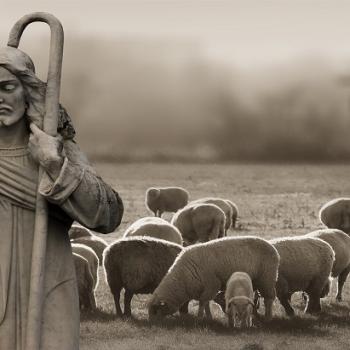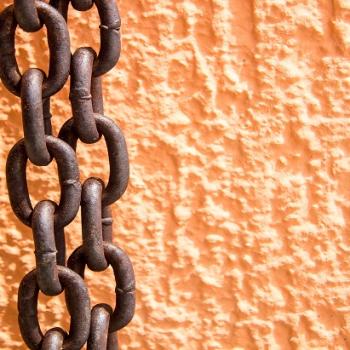Something I’ve seen and heard tossed around in Protestant apologetics is the term sola Scriptura. This is a Latin phrase meaning “only Scripture”, that our only authority is the Bible. I’ve been researching this for a while, and many religious voices have made it clear that sola Scriptura has many issues that need addressing.
Protestant Support for Sola Scriptura
For the Protestant side of this debate, I found this YouTube video by Ligonier Ministries, featuring the late Pastor R.C. Sproul:
In the comments section of this video, a few people noted that Pastor Sproul didn’t properly address sola Scriptura. Instead, he focused on the divine inspiration of Scripture.
It’s interesting to me that he remarked about the “circular fallacy” he’s heard in response to defending sola Scriptura. Pastor Sproul mentioned the purported fallacy that arguing for the inerrancy of Scripture leaves one “caught in the bounds”. This article by the Catholic site Tradidi refers to this fallacy as “begging the question”.
Arguing against sola Scriptura isn’t the same as asserting that the Bible is full of errors. From what I’ve seen and heard, the ultimate issue is how this belief interacts with our interpretation of Scripture. That, and how we apply it to our beliefs.
Here’s another Protestant defense of sola Scriptura from the Protestant YouTube Channel Truth Unites run by Gavin Ortlund:
Gavin has a friendly approach to Catholic and Orthodox voices in this debate. I appreciate that, and I love that he supports having deep discussions with people of all denominations. We need more of that approach in our arguments over religious matters!
I’ve been wondering whether sola Scriptura is a product of the Reformation. Gavin stated here that it isn’t, and I believe him. He argued that sola Scriptura was believed by certain Church Fathers, and wasn’t officially referred to as sola Scriptura until after the Reformation.
A Better Definition
Gavin did an excellent job with defining sola Scriptura in a more objective fashion. He specified that it isn’t about Scripture being the “only source” we use, but the only infallible source.
I do side more with the Catholic take on this debate, but I still agree with him on this. Human interpretation of divine revelation is a big issue, and human interpretation is sometimes full of error.
To back this point up, Gavin referenced Matthew 15:1-6. This passage is about Jesus calling out the Pharisees for violating God’s laws in the name of “tradition”. Matthew 15:6 sums this up:
“So for the sake of your tradition you have made void the word of God.” (Matthew 15:6)
No matter what denomination we stick with, all Christians should watch out for traditions that act contrary to God’s Word.
I appreciate this video that Gavin did on sola Scriptura. He encourages his viewers to look up terms similar to this belief, such as prima Scriptura (“Scripture first”) and “coincident” (Scripture and Tradition working together).
Next, here’s what I found about the Orthodox view on sola Scriptura!
An Orthodox Take
I found this discussion shared by the YouTube channel Gospel Simplicity. The author of the channel had a great conversation with the Orthodox Fr. Josiah Trenham about sola Scriptura:
Fr. Trenham expressed incredibly diplomatic views towards the Protestant support of sola Scriptura. At the start of this discussion, Fr. Trenham asserts that Protestants defend this belief from piety.
He also states that nobody, neither Orthodox, Catholic, or Protestant, is speaking against the centrality of Scripture. We Christians all cherish Scripture and look to the Bible for guidance on many topics. I found it interesting that Fr. Trenham gave this answer right after I finished hearing Pastor Sproul’s argument.
I heard Fr. Trenham also mention that the Catholic Church used to discourage people from reading Scripture. So far, I’ve only found Catholic sources disproving this claim. This would make for an interesting research article.
One of the most important points Fr. Trenham made here was his reference to 2 Thessalonians 2:15. In this verse, St. Paul urges the people of Thessaloniki, Greece, to “stand firm” in the traditions they received from both spoken words and letters:
“So then, brothers and sisters, stand firm and hold fast to the teachings we passed on to you, whether by word of mouth or by letter.” (2 Thessalonians 2:15)
St. Basil and a Look at Tradition
Towards the end of this video, Fr. Trenham mentions the writings of St. Basil the Great. One of my fellow writers here on Patheos, Dave Armstrong, did an article on St. Basil’s teachings. Both the video and article were quite eye-opening!
St. Basil remarked that we have beloved traditions not found in Scripture. One of these is making the sign of the Cross. Another is baptizing individuals in the name of the Trinity.
This point has also been brought up by Trent Horn, who runs the YouTube Channel The Counsel of Trent. In this article, Trent points out that there are Protestant traditions not based on the Bible. These include the Protestant view that all revelation from God ended after the apostles.
As a side note, it’s important to distinguish between public and private revelation. The Catholic Church states that we won’t see more public revelation until Jesus returns. Private revelation, however, continues to happen and can manifest as Marian apparitions as a prime example.
Going Further
This is another video featuring Fr. Trenham and his take on sola Scriptura:
https://youtu.be/DQR12X8ex60
How interesting that he was a Presbyterian minister before becoming Orthodox!
I like that he mentions how Protestants have different views on what sola Scriptura means. Apparently, some other Protestant Reformers didn’t think that Martin Luther had gone far enough with his thoughts on sola Scriptura!
To Fr. Trenham, the major error that Luther and all other Reformers made was how they approached all ecumenical councils. In his words, by critiquing every ecumenical council, the Reformers “made themselves Popes/judges” over these councils. And if they judged the councils, who in turn would judge them?
It’s important to call out blatant errors and corruption evident in tradition. But like Fr. Trenham says, one must avoid denouncing all tradition as impertinent.
I agree with Fr. Trenham that “apostolic tradition” includes not only Scripture but the lives of the saints, among others. Testimonies of faith help deepen our own faith, after all.
Now, let’s look at the Catholic take on sola Scriptura.
The Catholic Case Against Sola Scriptura
I’ve been having a blast listening to Fr. Mike Schmitz from Ascension Presents for the Catholicism posts I’ve recently written. He has an excellent video on why Scripture and Church Tradition go hand in hand:
From the video description, I saw that Fr. Mike referenced 2 Thessalonians 2:15 like Fr. Trenham did. He also references 1 Timothy 3:15, in which St. Paul refers to the Church as the “pillar of truth”:
“…if I am delayed, you will know how people ought to conduct themselves in God’s household, which is the church of the living God, the pillar and foundation of the truth.” (1 Timothy 3:15)
Fr. Mike attests that Catholics absolutely believe that the Bible is the inerrant Word of God. He also states that the Bible isn’t the only way God uses to reveal Himself to us. The Catholic Church values Scripture, Tradition, and the Magisterium as avenues for divine revelation.
This video taught me about the Magisterium, the Catholic Church’s office of interpreting the Bible. Fr. Mike states that the Magisterium exists to answer questions that we might have that couldn’t have been predicted by the Biblical authors. Based on what he’s saying, the Magisterium seems to be a safe spot for sound interpretation.
“Not In the Bible!”
Fr. Mike makes an excellent point about Christians cherishing things not found in the Bible. While he admits that the word “Purgatory” isn’t in the Bible, he also remarks that neither is the word “Trinity”. And of course, we Christians don’t question the sacredness of the Trinity.
One of the biggest shockers in this video is Fr. Mike claiming that all Christians believe in the office of the Catholic Church. He backs this up by reminding his audience of the connection between the approved books of the Bible and the Church councils that decided on them. By trusting in the process of approving Biblical canon, we thus trust in Tradition as well.
This video gave me a brief but strong history refresher. According to Fr. Mike, it was Martin Luther who first purported sola Scriptura. Something I’m still trying to research is whether or not it was Luther who named this belief.
Fr. Mike defines sola Scriptura as refusing to believe anything not found in Scripture. This definition has merit; like he says in this video, this is one of the biggest accusations thrown against Purgatory.
But Fr. Mike also points out that you can’t find anything in the Bible that directly supports sola Scriptura. This makes for some delicious irony, doesn’t it?
What About Timothy?
One of the verses I’ve seen used for defending sola Scriptura is 2 Timothy 3:16-17. These are the verses that call all Scripture divinely inspired:
“All Scripture is God-breathed and is useful for teaching, rebuking, correcting and training in righteousness, so that the servant of God may be thoroughly equipped for every good work.” (2 Timothy 3:16-17)
Fr. Mike affirms the value of these verses while also pointing out that St. Paul is referring to the Old Testament here. It’s jarring to remember that the New Testament wasn’t published or collected until some time after the apostles. One source I’ve found marks the publishing year as 115 A.D.
This gives a whole new level of context to 2 Timothy 3:16-17. Fr. Mike follows this up with 1 Timothy 3:15, which refers to the church as the pillar of truth. Of course, he doesn’t mean that Scripture is irrelevant compared to the Church or Tradition.
Fr. Mike also references 2 Thessalonians 2:15, reminding us that the apostles passed on teaching through both letters and word of mouth. Both written and oral traditions have value in passing on the knowledge of the Church. It’s odd to me, realizing (especially after listening to Fr. Trenham earlier) that what we read in the epistles was likely elaborated on by the apostles to the people in that age.
My Take on Sola Scriptura
In the end, I side with the Orthodox and Catholic take on sola Scriptura. I might be a Methodist, but I know that some questions require extra-biblical answers.
That doesn’t mean that I think the Bible is insufficient. But like Fr. Mike said in his video, the Biblical authors probably weren’t thinking about the questions we’re asking.
For me, the biggest questions I’ve had are:
- What happens to those who take their own lives because of depression, anguish, or despair?
- What exactly is the nature of Hell, and why would anybody end up there?
The Issue of Suicide
It’s not the Bible’s fault that it doesn’t address depression or suicide by name. Reading about Elijah’s struggles gives us a good analogy for what deep despair feels like. Reading his story reminds me that I’m never alone in my own struggles with depression.
After my old school friend Will took his life after we’d all graduated from high school, I didn’t know what to believe. My Protestant faith didn’t have the answer I needed, which was knowing beyond a shadow of a doubt that Will was at peace.
God knew how deep my grief over Will ran. To help me understand that Will was ok, God used dreams, the testimonies of certain saints, and a midnight visitation from Will himself to give His answer.
I worry that some adherents of sola Scriptura would question the legitimacy of these experiences. If they did, I’d assure them that the peace God gave me is how I know it was Him speaking and working.
Mental health is one of the biggest reasons why I disagree with sola Scriptura. The Bible has excellent words of comfort that can help us cope. But that doesn’t mean that God doesn’t help us deal with our mental illnesses through other means.
Hell No!
Now, I know that the Bible does discuss Hell several times. To say otherwise would mean willfully ignoring multiple passages, including what Jesus says about it in Matthew 25:41:
“Then he will say to those on his left, ‘Depart from me, you cursed, into the eternal fire prepared for the devil and his angels.” (Matthew 25:41)
Confronting the existence of Hell is necessary for many of us to avoid our faith getting shaken up or ruined. Perhaps the biggest question we have regarding Hell is, does God send people there despite being Love?
When I was a senior in college, I had a vivid dream of seeing a statue of the Blessed Virgin Mary. She held a fresh white lily in her extended hand, and I heard her tell me that she would help me in my journey of spiritual growth.
I realized recently that I saw her statue from Apparition Hill in Medjugorje, Croatia. When Mary came as an apparition to Medjugorje, she gave visions of Heaven, Hell, and Purgatory. The testimony of what they saw in Hell helped me understand why it exists.
The visionaries of Medjugorje saw that the people in Hell are transformed into the likeness of demons. They become like Satan, raging against God and filled with hate.
Learning about Medjugorje and the extra context therein helped me find the answer I needed about Hell.
Proper Dogma
This debate will likely never end. The battle over sola Scriptura has been a thing since the Reformation, and that’s a doozy to think about!
Again, I personally disagree with sola Scriptura. I think the belief has profound issues, and I agree with the Catholic and Orthodox voices in this debate.
As a Protestant, I can see why other Protestants abide by it. Even then, I strongly recommend researching what the Catholic Church believes about this. It’s all too easy to adhere to anti-Catholic propaganda as Protestants; this is why I’ve been on a “truth spree” this past week.
The next topic I’m tempted to look at is why some Christians refuse to call Catholics their brothers and sisters in Christ. And oh boy, I already know that this will be an unpleasant bit of research, to put it lightly.
Featured Image by cgrape/Pixabay
Hello, and thank you for supporting my work here on Patheos! If you’d like to support me further, please feel free to “Buy Me A Coffee” here:












